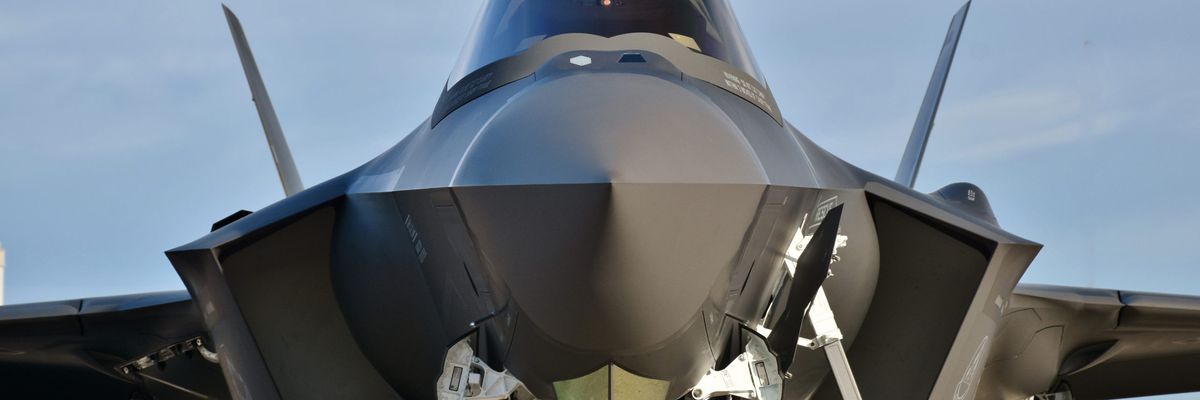According to a State Department spokesperson, the Biden administration has taken the hold off a controversial sale of F-35's, drones and bombs — $23 billion worth — to the United Arab Emirates. The $23 billion sale was first crafted by the Trump administration as a sweetener for the monarchy's agreement to normalize relations with Israel.
Another Trump-era package — $8 billion worth of weapons for UAE and Saudi Arabia approved by Congress in late 2019 under an emergency declaration, is still under review.
The news won't be welcome in quarters where the weapons are seen as a reward for the UAE's human rights violations, externally in the Yemen War and in the fighting in Libya, but also at home, against its own people. They are also considered a tether between the United States and the Gulf state, at a time when Washington is supposedly seeking ways to extricate itself from the region and begin to let these Arab states — long seen as dependents — to start managing their own security.
Most importantly, critics which include members of Congress as well as human rights groups, have been waiting for real action when it comes to Biden's pledge to help end the war in Yemen. While the UAE claimed to withdraw its forces from Yemen at the end of 2019 it has continued to occupy key ports, airports, and infrastructure, while also funding separatist fights. “If the Biden administration is serious about addressing the factors driving violence in Yemen, the role of the UAE cannot be ignored,” Annelle Sheline, Quincy Institute Middle East expert, has pointed out.
“The weapons we sold to Saudi Arabia and UAE have been used to kill schoolchildren, transferred to extremist militias, and fueled a dangerous arms race in the Middle East," tweeted Democratic Sen. Chris Murphy back in January when members were trying to actively stop the sales.
Despite it's dark role in the region's violence — another reason why we are anchored there interminably — the UAE has made some 39 deals with the United States since 2009, bringing the total of all its weapons sales, including the pending agreements, to $59 billion, according to researcher William Hartung at the Center for International Policy.
But don't worry, the State Department says the new weapons won't be delivered until after 2025 and until then "we will also continue to reinforce with the UAE and all recipients of US defense articles and services that US-origin defense equipment must be adequately secured and used in a manner that respects human rights and fully complies with the laws of armed conflict.”
















